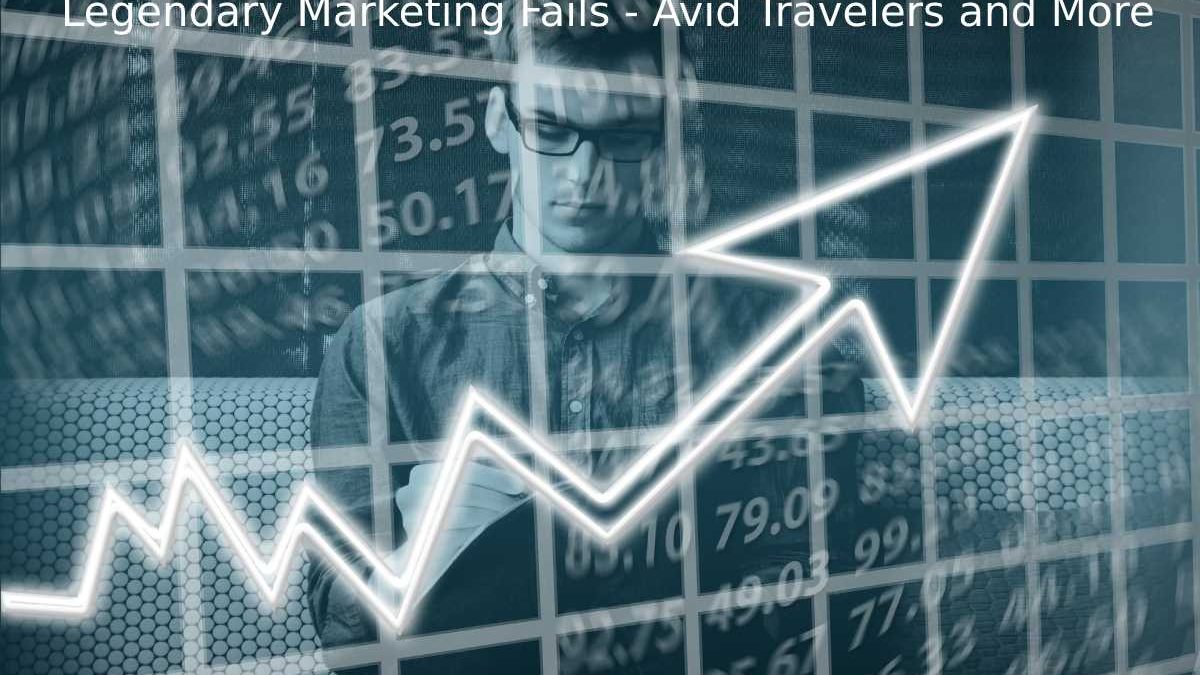Table of Contents
Legendary Marketing Fails
Legendary Marketing Fails: Even big businesses can fail and occasionally make errors that cost them millions or billions of dollars.
Avid travelers
- Demand decreased gradually in the 1980s, while the US commercial aviation industry grew tremendously.
- The biggest passenger carrier started offering certificates for limitless trips to draw attention and boost earnings. One of these tickets costs $250,000.
- So, for instance, Chicagoan Steve Rothstein became the airline’s most frequent traveler after purchasing such a ticket.
- Done the course of his life, he could fly more than 10,000 times, incurring a $ 21 million cost to the business.
- Steve once boarded an aircraft solely to get a sandwich in a neighboring state or to watch football with a friend. He also enjoyed traveling to Detroit on Saturdays.
- The owners soon realized this action was not in their best interests. Furthermore, it eventually even resulted in losses.
- The American airline started taking limitless tickets away from its customers. Of course, there were lawsuits and reputational damage.
- This company still offers flight savings, but no limitless deals exist.
- The airline assumed only wealthy individuals would purchase golden tickets to fly their managers.
- However, even the most ordinary people recognized the advantage. It was a complicated offer to turn down, so everyone began to purchase advertising deals.
Tricky lure from Kaiwei Ni
- Advertising frequently uses several shady tactics in its pursuit of customers. As a result, the Chinese shoemaker Kaiwei Ni created a “hairy trap” for Instagram users to fall into.
- The brand’s ads featured hair that appeared so realistically done that most users were compelled to swipe it up, along with the picture of the shoes and the discount.
- Unaware people then unexpectedly found themselves on the footwear company’s website.
- The advertisement was promptly taken down from Instagram since it was against the terms of service.
- The page of entrepreneurial Chinese bloggers is currently closed. A cheap gimmick that never indeed succeeded, fake hair has become.
Number Fever by Pepsi
- Coca-Cola, Pepsi’s primary rival, securely retained the sales lead in Southeast Asia with 75% of the market share.
- The management and marketers at Pepsi devised a brilliant marketing strategy known as “Number Fever” to take back control of the situation.
- The operation involved placing a three-digit digital code under the covers of the Pepsi drinks sold.
- A reward of up to a thousand pesos was given to the individual who discovered the number under the cover.
- The sole lucky winner, whose number will be revealed after the game, was scheduled to get the primary prize of one million pesos, equivalent to roughly 40.000 dollars.
- A big success was achieved. In just two weeks, Pepsi sales are up 40%.
- However, a tiny fly in the ointment in this large barrel of honey ruined everything and made it essential to declare the winner and distribute the prize money.
- After the game, it was ultimately revealed that the person holding the cover with the number 349 would win a million pesos.
- But that’s where misfortune struck. This error cost the corporation 800 billion pesos because it was miswritten on 800,000 hats. Tens of thousands of Filipinos arrived for the awards.
Weather Prediction by Walkers (Lays)
- The British company Walkers, better known today by its trademark Lay’s, decided to organize weather forecasting in 2010.
- The guidelines were straightforward: purchase a bag of chips, locate a unique code, visit the business’s website, and select the day it will rain.
- If the forecast came true, the buyer would win 10 pounds. Although a bag of chips only costs roughly 40 pence, this is the case.
- Naturally, when there was such a big offer, everyone rushed to take advantage of it.
- The authors of this promotion were either not from the UK, which the marketers failed to mention, or they were.
- The event’s outcome was easy to predict because it occurred in the fall, when England’s weather was often rainy.
- As a result, the company lost more than £1 million during the first challenging week, but it truthfully gave the buyers their total rewards.

